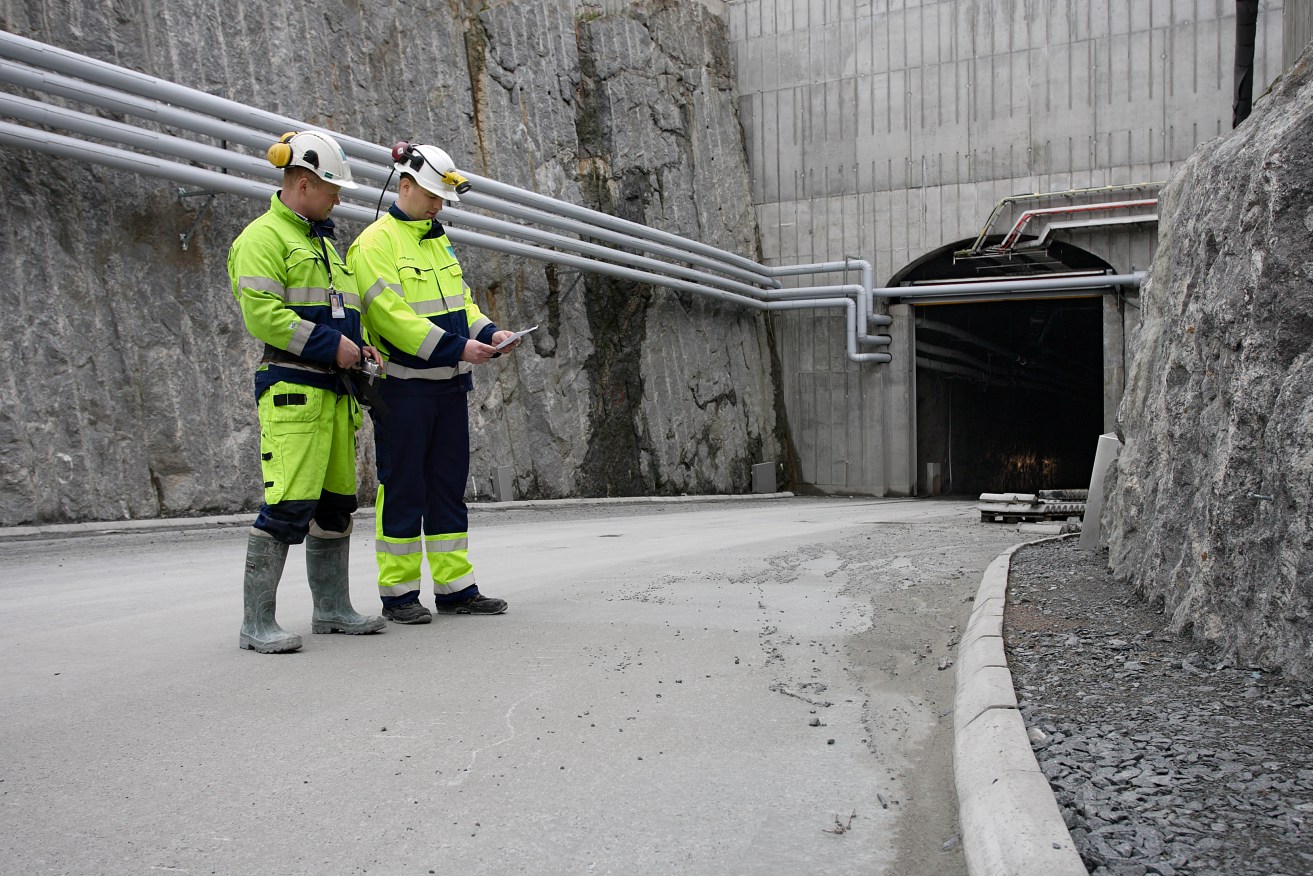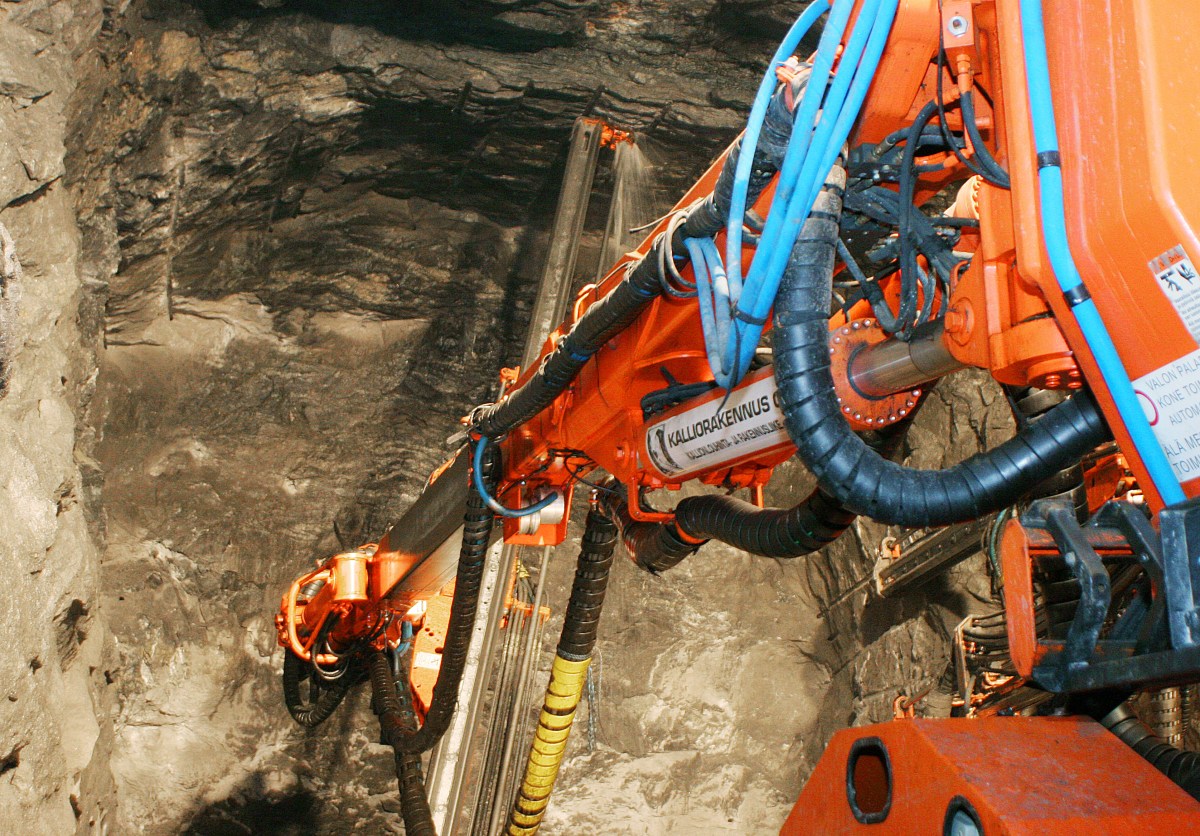Finnish expert says “conservative” nuke bonanza just the beginning
The vast $445 billion, 70-year windfall from a prospective nuclear waste repository outlined in the Scarce Royal Commission’s final report likely underestimates the economic impact of the project, according to a senior official at the Finnish facility Premier Jay Weatherill will visit today.

Workers at the Onkalo site, which Jay Weatherill will visit today. Photo: Posiva website.
Weatherill will tour Finland’s under-construction Onkalo facility tonight, Adelaide time, as debate around South Australia’s nuclear future intensifies with a second citizens’ jury of 350 participants to begin sitting across three weekends from next month.
Finland is regarded as a world authority on the development and storage of nuclear fuel, with the royal commission interviewing several officials involved with the Onkalo facility, including Dr Sami Hautakangas, the head of Finnish energy company Fortum’s Spent Fuel and Disposal Services and an advisor to Posiva, the company constructing the repository.
Hautakangas was in Adelaide last week for the Australasian Radiation Protection Society conference at the Convention Centre, and told InDaily Scarce’s assessment – which foretold of an average annual state revenue of $5.6 billion in the first 30 years of operation alone – was “a good starting point”.
The estimate was quite conservative, which means there might be the possibility of an even bigger outcome
“At this moment the variation about the economic impact is somewhat big, since there are many details which needs to be decided to have a clearer picture, but from the experience I’m having from a [nuclear power plant] operator point of view… I think that the commission has quite a good starting point in assessing the economic impact,” he said.
“The estimate was quite conservative, which means there might be the possibility of an even bigger outcome… everything more that comes is a plus.”

Machinery at the Onkalo site. Photo: Posiva
The economic benefits of the proposed waste dump have been the subject of intense debate, given Scarce’s calculations will be the primary selling point if the Government commits to proceeding with further planning by year’s end. Think-tank the Australia Institute released its own research in March arguing that the commission grossly exaggerated the economic benefits.
But Hautakangas says: “I think that there will be definitely a market for this kind of service, no doubt.”
“We know there are many countries using nuclear but they are really lacking a solution for a waste repository, [so] definitely there will a market there,” he said.
While Finland will store its own nuclear waste, Hautakangas says “there’s quite strict regulation and legislation regarding international waste” to ensure the country doesn’t export or import spent fuel, which he says would preclude it from becoming a competitor for the world’s waste.
“So this would mean if we would like to enter the market we [would have to] change the law [and] I think at this moment there’s no any kind of intentions towards this kind of development,” he said.
He said an important factor in Finland’s population finding relative consensus behind nuclear was the role of its Radiation and Nuclear Safety Authority, STUK.
“We’ve somehow been able to construct a great trustful dialogue between the public and the Nuclear Safety Authority,” he said, arguing that this also separated political and economic decision-making from issues around safety, which are entirely determined by the authority.
Asked about safety concerns, with the spectre of nuclear disasters looming large in the arguments against the waste dump, Hautakangas said there was “no fear at all that [SA] could have something like Fukushima or Chernobyl”.
“You’d never ever see anything comparable to Fukushima or Chernobyl [because] the fact is the repository won’t have this kind of active nuclear material,” he said.




